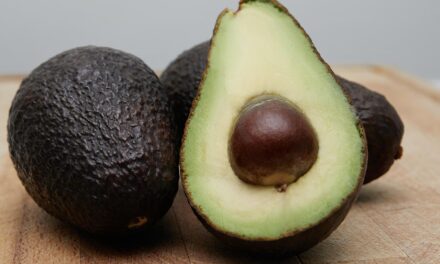How Kale supports health
Kale is a powerhouse superfood that provides targeted support to several key areas of health. Here’s how kale benefits specific systems in the body:
1. Heart Health
- Cholesterol Reduction: Kale contains bile acid sequestrants, which help lower LDL (bad) cholesterol levels by binding bile acids and encouraging their excretion. This, in turn, reduces the risk of cardiovascular disease.
- Antioxidant Protection: High in antioxidants like quercetin and kaempferol, kale helps combat oxidative stress that can lead to arterial damage, inflammation, and plaque buildup in the heart and blood vessels.
- Potassium and Blood Pressure: With significant potassium content, kale helps maintain healthy blood pressure levels, reducing strain on the cardiovascular system.
2. Brain Health
- Anti-inflammatory Properties: The flavonoids in kale, such as quercetin, possess anti-inflammatory effects that help protect brain cells and support cognitive function.
- Vitamin K: High in vitamin K, kale supports the brain by promoting better cognitive function and reducing the risk of neurodegenerative diseases.
- Folate (B9): Folate is essential for brain health, supporting mood regulation, cognitive function, and overall neurological health. Adequate folate intake is linked to a lower risk of cognitive decline.
3. Digestive Health
- High Fiber Content: The fiber in kale aids digestion by promoting regular bowel movements, preventing constipation, and fostering a healthy gut microbiome.
- Supports Liver Detoxification: Kale contains glucosinolates, sulfur compounds that assist in liver detoxification, enabling the liver to process toxins more efficiently. This supports digestion and metabolic health.
- Alkalizing Effect: As an alkaline food, kale helps balance pH levels in the body, supporting a healthy digestive environment.
4. Bone Health
- Calcium and Vitamin K: Kale is rich in vitamin K and contains plant-based calcium, both crucial for bone density and strength. Vitamin K is essential for binding calcium to the bone matrix, reducing the risk of osteoporosis and fractures.
- Magnesium: Kale’s magnesium content also contributes to bone health, as magnesium helps regulate calcium levels and supports bone mineralization.
5. Eye Health
- Lutein and Zeaxanthin: Kale is one of the best sources of these carotenoids, which protect the eyes from harmful UV rays and blue light. They also help reduce the risk of macular degeneration and cataracts.
- Vitamin A: As a precursor to vitamin A, beta-carotene in kale supports vision by maintaining a healthy retina and promoting good night vision.
6. Immune System Support
- Vitamin C: With more vitamin C than many citrus fruits, kale boosts immune function, supports white blood cell production, and helps combat infection.
- Beta-Carotene (Vitamin A): Kale is rich in beta-carotene, which the body converts into vitamin A to strengthen immune response by supporting the health of mucous membranes in the respiratory and digestive tracts.
7. Skin Health
- Antioxidants: Vitamin C and other antioxidants in kale fight free radical damage, helping to maintain skin elasticity and reduce signs of aging.
- Collagen Production: Vitamin C is crucial for collagen synthesis, a protein that keeps skin firm and youthful.
- Vitamin A: As an important nutrient for skin cell regeneration, vitamin A in kale supports healing, reducing acne, and maintaining a healthy skin barrier.
8. Anti-inflammatory Benefits
- Flavonoids and Omega-3s: Kale contains anti-inflammatory compounds like quercetin and omega-3 fatty acids that help mitigate chronic inflammation in the body, potentially lowering the risk of diseases such as arthritis, cardiovascular disease, and certain cancers.
9. Weight Management
- Low-Calorie, Nutrient-Dense: Kale is low in calories but packed with essential nutrients, making it an excellent choice for weight management.
- Fiber-Rich: The fiber content in kale promotes satiety, keeping you full longer and helping reduce overall calorie intake.
By supporting heart health, cognitive function, digestion, bone health, and immunity, kale truly stands out as an all-around health-promoting food. Its unique combination of vitamins, minerals, fiber, and antioxidants makes it one of the best choices for maintaining and enhancing overall health.
Find out more about Kale as a superfood
How Chia Seeds Support Health
by fab_brands | January 15, 2025 | nutrition, superfoods | 0 Comments
Chia Seeds as a Superfood
by fab_brands | January 15, 2025 | nutrition, superfoods | 0 Comments
Frequently Asked Questions about Dates
by fab_brands | December 1, 2024 | superfoods | 0 Comments
How Dates Support Health
by fab_brands | December 1, 2024 | superfoods | 0 Comments
Nutritional Profile of Dates
by fab_brands | December 1, 2024 | superfoods | 0 Comments
Frequently Asked Questions about Kale
by fab_brands | November 25, 2024 | superfoods | 0 Comments
How Kale Supports Health
by fab_brands | November 25, 2024 | superfoods | 0 Comments
Nutritional Profile of Kale
by fab_brands | November 25, 2024 | superfoods | 0 Comments
Frequently Asked Questions about Eggs
by fab_brands | November 18, 2024 | superfoods | 0 Comments
How Eggs Support Health
by fab_brands | November 18, 2024 | superfoods | 0 Comments





